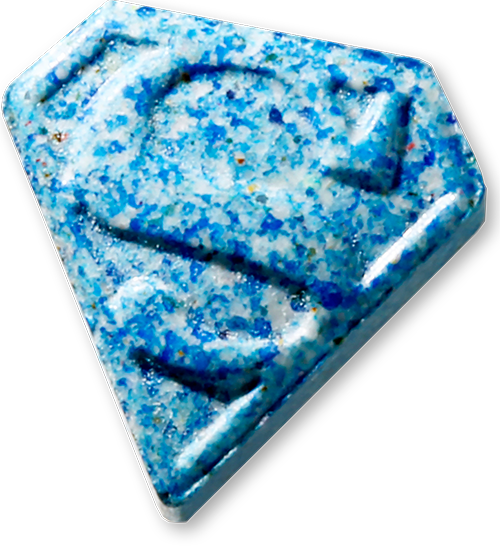MDMA
MDMA is considered a hallucinogen even though it is not as likely to cause hallucinations. The chemical substance name MDMA stands for 3,4-methylenedioxymethamphetamine, an organic compound whose gross formula is C₁₁H₁₅NO₂.

What does MDMA do in the brain?
Watch the video below to see what MDMA does in the body and brain.
The effects of MDMA
Effects
- Tingling
- Relaxing and floating feeling
- Emotional openness
- Increased empathy, more contact with individuals
- Energetic
- Attraction to other (unknown) people
- More intense perception
- One is less able to coordinate movements
- Saliva production disappears, very dry mouth
- Blood pressure and body temperature rises, heart rate increases
Side effects
- Trembling eyes
- Excessive sweating
- Fatigue and insomnia
- Cramps, nausea and vomiting
- Difficulty urinating
- Dry throat and mouth
- Holding jaws tightly shut resulting in tooth and jaw pain, chapped cheeks
- Palpitations, rise in blood pressure and body temperature, sweating, headache or dizziness
- Shiver
- Feelings of tightness, emptiness or depression and irritability
- Fear
- Hallucinations
- Seizures
MDMA as therapy?
MDMA therapy can be used safely by using proper screening and treatment methods. With proper precautions, you reduce the chance of negative side effects and greatly increase the therapeutic potential.
Read more here MDMA therapy
